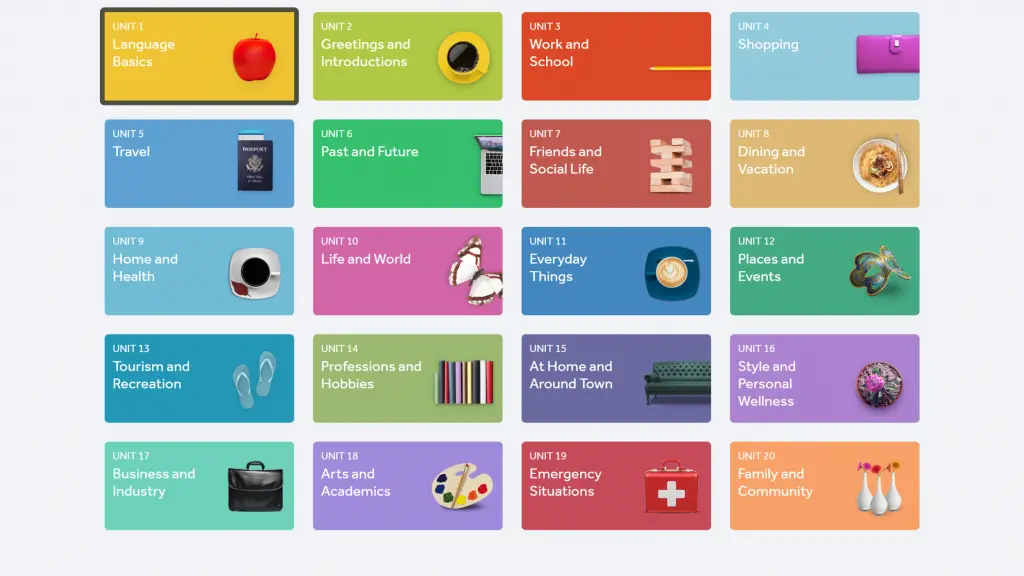Language is the key to effective communication and understanding among diverse cultures and communities. In an increasingly interconnected world, the ability to speak multiple languages has become a valuable asset for personal, academic, and professional growth. Rosetta Stone, a pioneering language learning platform, has been at the forefront of empowering individuals to unlock their linguistic potential. With its innovative approach, advanced technology, and comprehensive curriculum, Rosetta Stone has transformed the way people learn languages. In this article, we will explore the features, benefits, and conclusions of using Rosetta Stone as a language learning tool.
I. A Brief Overview of Rosetta Stone:
Rosetta Stone, founded in 1992, has established itself as a global leader in language learning solutions. Initially, the company focused on CD-ROM-based language courses before transitioning to an online platform. Rosetta Stone offers a wide range of languages, including popular ones like English, Spanish, French, German, and Mandarin, along with lesser-known languages.
II. The Rosetta Stone Methodology:
Immersive Language Learning: Rosetta Stone adopts an immersive approach to language learning, emulating the way children acquire their native languages. Through a combination of visual and auditory stimuli, learners are exposed to the target language from the very beginning. This technique encourages natural language acquisition, helping learners develop their speaking, listening, reading, and writing skills simultaneously.
Dynamic Curriculum: The platform’s curriculum is carefully designed to cater to learners of different proficiency levels, from beginners to advanced speakers. Rosetta Stone breaks down language learning into bite-sized lessons that cover essential vocabulary, grammar, pronunciation, and cultural aspects. The adaptive technology ensures that each learner progresses at their own pace, reinforcing concepts and adapting to individual strengths and weaknesses.
Interactive Learning Experience: One of Rosetta Stone’s notable features is its interactive and engaging learning experience. The platform utilizes speech recognition technology to provide instant feedback on pronunciation, ensuring learners develop accurate speaking skills. Additionally, the exercises incorporate real-life scenarios, interactive games, and multimedia content to keep learners motivated and actively engaged throughout their language journey.
Key Features of Rosetta Stone:
Speech Recognition Technology: Rosetta Stone’s proprietary speech recognition technology enables learners to practice and improve their pronunciation. This feature allows users to compare their pronunciation with that of native speakers, receiving real-time feedback and suggestions for improvement.
Mobile and Offline Learning: The Rosetta Stone app extends the learning experience beyond desktop computers. Learners can access their courses on smartphones and tablets, making language learning convenient and accessible on the go. Furthermore, the app offers offline learning capabilities, enabling learners to download lessons and continue their studies without an internet connection.
Live Tutoring Sessions: Rosetta Stone offers live tutoring sessions with qualified language instructors. These one-on-one sessions provide learners with an opportunity to practice speaking, receive personalized guidance, and gain confidence in their language skills. The live tutoring feature enhances the interactive aspect of the platform and allows learners to seek clarification on specific language concepts.
Pronunciation TruAccent™: To help learners refine their pronunciation, Rosetta Stone incorporates TruAccent™, an advanced speech analysis engine. TruAccent™ accurately assesses learners’ pronunciation, provides instant feedback, and offers guidance to achieve native-like intonation and fluency.
Adaptive Recall Feature: Rosetta Stone employs a unique adaptive recall feature called “Interval Reinforcement.” This feature prompts learners to review previously learned content at specific intervals, reinforcing vocabulary and grammar concepts over time. By strategically spacing out the review sessions, the platform helps learners retain information in their long-term memory.








